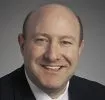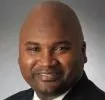- within Coronavirus (COVID-19), Government and Public Sector topic(s)
- with readers working within the Banking & Credit industries
In one of the most closely watched races in the country, Chicago's mayoral runoff election will see Cook County Commissioner Brandon Johnson sworn in on May 15 as the city's 57th mayor.
Johnson, the 47-year-old Cook County Commissioner, former school teacher, and 12-year union organizer for the Chicago Teachers Union ran what most consider a very strong campaign, despite being significantly outspent by his challenger, 69-year-old former Chicago Public Schools CEO Paul Vallas.
Turnout across the city was 35.3%, depressed in part by poor weather conditions, which likely played a part in turnout for both Johnson and Vallas. Vallas voters tended to skew more toward older and more "traditional" Democratic voters, while Johnson put together a coalition of younger, more progressive, and new voters to help propel him to victory.
Vallas, who has run (albeit unsuccessfully) for a number of elected offices — governor in 2002, and flirting with the idea of a run for either governor or Cook County board president in 2010, lieutenant governor in 2014, and mayor in 2019 and 2023 — garnered the most votes in the municipal general election for this year's mayoral election. His campaign focused, some would say relentlessly, on one message — crime — throughout the first round of the campaign, which included eight other candidates, and during the runoff with Johnson. Looking back, some will argue that although the Vallas campaign focused on the crime issue, which was foremost on Chicago voter's minds, he was unable to connect with voters on how to address the issue.
Conversely, the argument can be made that Johnson was more able to connect with voters, as he made broader-based appeals, focusing on crime and policing but also talking about schools and issues of race and class. On the other hand, Johnson's economic plan talks about several items that are extremely unpopular in the business community, including taxing wealthy suburbanites who work downtown but leave the city every evening on commuter trains. (Johnson has proposed a $4-per-month employee tax on "large" companies that have at least half of their operations in the city.) He also talked (obliquely) about "new" and "innovative" ways to tax passengers who use the city's airports, as well as the possibility of taxing various kinds of financial transactions at the city's financial exchanges (like a $1- or $2-per-trade tax on trades at the Chicago Mercantile Exchange [CME] and the Chicago Board of Exchange [CBOE], higher hotel taxes, and higher transfer taxes on "expensive" homes [sometimes called the "million-dollar home tax"]) — taxes that have been talked about in the past but have failed to be implemented in past city and state administrations. However, in politics one learns to never say never!
Vallas's campaign was backed by executives at hedge fund Citadel and private equity firm Madison Dearborn Partners. Vallas outspent Johnson by about 2 to 1, proving once again, as we saw when Citadel's Ken Griffin dropped +/- $51M into Aurora Mayor Richard Irvin's failed gubernatorial bid in 2022, that notwithstanding the fact that money is the mother's milk of politics, sometimes milk alone may not be enough to carry the day.
Johnson reported raising $11.4M in campaign funding between October 2022 and the runoff — $5.6M came from teachers unions ($2.3M from the CTU, $75K from the Illinois Ed. Assn., and the rest from state and national teachers groups). By comparison, teachers' unions gave Chuy Garcia $572K and Toni Preckwinkle $292K for their failed mayoral runs.
Quality vs. Quantity: More Isn't Always Better
By the numbers, each candidate not only had a lot of endorsements, but endorsements for this mayoral runoff election in the nation's third-largest city came from all over the country. Vallas counted among his supporters Chicago's largest police union. He also had Ill. Sen. Dick Durbin; just-retired Ill. Sec. of State Jesse White; former Obama Admin. Sec. of Education Arne Duncan; former mayoral candidates Willie Wilson, Sophia King, Rod Sawyer, and Ja'Mal Green; 20 aldermen and alderwomen; and 18 unions and labor organizations. Johnson had 35 community organizations and 14 unions as well as endorsements from Sens. Elizabeth Warren and Bernie Sanders; Cong. Jan Schakowsky, James Clyburn, Jonathan Jackson, Danny Davis, and Ayanna Pressley; former mayoral candidate (and U.S. Cong.) Chuy Garcia; Ill. Atty. Gen. Kwame Raoul; Rev, Jesse Jackson, Sr.; Chicago band Wilco; Chicago rapper Common; and Martin Luther King III. But endorsements don't vote, voters do, and when all was said and done, Johnson collected 288,647 votes (51.42%) to claim victory over Vallas, who had 270,775 votes (48.58%) according to Wednesday morning's unofficial results.
Johnson's support grew tremendously between the February 28 municipal general election and the April 4 runoff — he claimed a huge swath of the South, West and large portions of the North Sides, taking precincts that Vallas had won in the February 28 election. Vallas held his voters on the far Northwest Side, the lakefront, downtown, and the Southwest and far-Southwest Sides.
In conceding the election late Tuesday night, Vallas calmly and sincerely called for unity and pledged to support Johnson. Mayor Lori Lightfoot, who had not endorsed either candidate in the runoff, congratulated Johnson on his win and did much the same, urging unity and calling for all Chicagoans to work together for the common good of the city.
The Big Winners?
Cook County Board President Toni Preckwinkle, who was an early supporter of Johnson.
The Chicago Teachers Union (CTU), long at odds with the mayor's office, now would seem to have an ally on the 5th floor at City Hall going into its upcoming contract negotiations.
The City Council's Progressive Caucus . . . well, maybe. The Progressive Caucus scored three significant victories of its own in aldermanic runoff races around the city (in the 5th, 6th, and 46th Wards), growing its ranks and helping to solidify Mayor-Elect Johnson's progressive agenda. However, the retiring chair of the City Council's Progressive Caucus, Sophia King, endorsed Vallas.
Ill. Gov. JB Pritzker, who didn't endorse either candidate . . . so he didn't make a mistake and he wasn't "wrong" by betting on the wrong horse. And maybe he even won slightly more than he lost, given that he and Vallas differed on policing policies and practices, so a Johnson "win" put the governor less at odds with the city's incoming mayor-elect.
The content of this article is intended to provide a general guide to the subject matter. Specialist advice should be sought about your specific circumstances.



